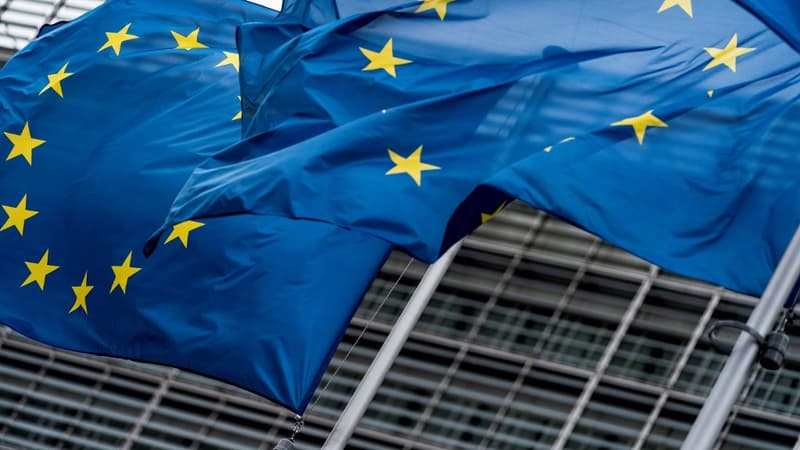The European Commission proposed this Monday that hydrogen produced from an electrical mix that includes nuclear energy could, under certain conditions, be considered “green”, a victory for France, which wants to use the atom to achieve the objectives set by the EU.
Germany and Spain advocate a more restrictive definition, considering only hydrogen from renewable sources as “green”. The criteria proposed by Brussels, which will be submitted to Member States and MEPs for approval, are part of European legislation currently being negotiated that sets ambitious “renewable” hydrogen targets for EU industry and transport. 27 by 2030.
The Commission first defines “green” hydrogen produced with an electrolyser directly connected to a “new” renewable electricity source, i.e. additional infrastructure compared to the current fleet, to encourage the deployment of new renewables without monopolizing existing infrastructure . Another scenario: the hydrogen will be “green” if the electrolyser is powered from a power grid where the share of renewables has reached at least 90% in the previous year.
Many conditions to meet
Likewise, it will be “green” if the mobilized electricity consumption is equivalent to a new renewable infrastructure, which operates at precisely the same hours and in the area where this hydrogen is produced. A transition period is planned for hydrogen production sites established before 2028. Finally, hydrogen will be considered “green” if the electricity grid used is largely carbon-free, with carbon emissions linked to electricity production. that do not exceed 18 grams of CO2 equivalent/megajoule (once this criterion is reached, it is considered valid for five years), a level that Sweden currently meets and that France is close to (19.6 g in 2020).
However, other conditions must be met: in addition to the geographical and temporal criteria, the hydrogen manufacturer must enter into (future) “purchase contracts” with electricity providers that use renewable energy, but without obliging the country in question to open up new infrastructure wind, solar or hydraulic.
This provision opens the way for hydrogen produced from a mix based on nuclear electricity, which France vehemently demands in the framework of renewable energy legislation, deeming it “absurd” not to be able to use the “low-carbon” atom to achieve your green goal. hydrogen targets.
Red line for Berlin and Madrid
The Commission takes into account France’s “decarbonised mix” and its existing renewable capacities, Paris welcomed on Monday. In short, Brussels “recognizes (our) decarbonisation efforts (…) Now we must apply this logic” to the text under debate on the European objectives of “renewable hydrogen”, reacted the French Minister for Energy Transition, Agnès Pannier-Runcher . “We’re not there yet.”
Indeed, if the “delegated acts” tabled on Monday are adopted without difficulty (an unlikely majority of at least 20 member states or MEPs would be needed to oppose them), negotiations between states and MEPs on “renewable energy” legislation promise be complicated, after initial discussions were canceled last week. This text must, in particular, impose on European countries minimum levels of renewable hydrogen in industry or transport by 2030 and 2035.
In this text, Paris wants to defend “equal treatment between low-carbon hydrogen (from nuclear energy) and renewable hydrogen.” Red line for Berlin and Madrid that reaffirmed their opposition on Monday. “We start from the principle that low-carbon fuels cannot be equivalent to those from renewable sources,” insisted the Ministry for the Ecological Transition of Spain.
Environmental NGOs are concerned that green hydrogen production will severely undermine the capabilities of renewable energy, encouraging it to be replaced by increased use of gas and coal. On the contrary, the professional federation Hydrogen Europe welcomed on Monday “a boost to the renewable hydrogen market” given the large US subsidies to this sector, while warning that “these strict rules will inevitably make green hydrogen projects more expensive”. and will limit its potential for expansion.
Source: BFM TV


